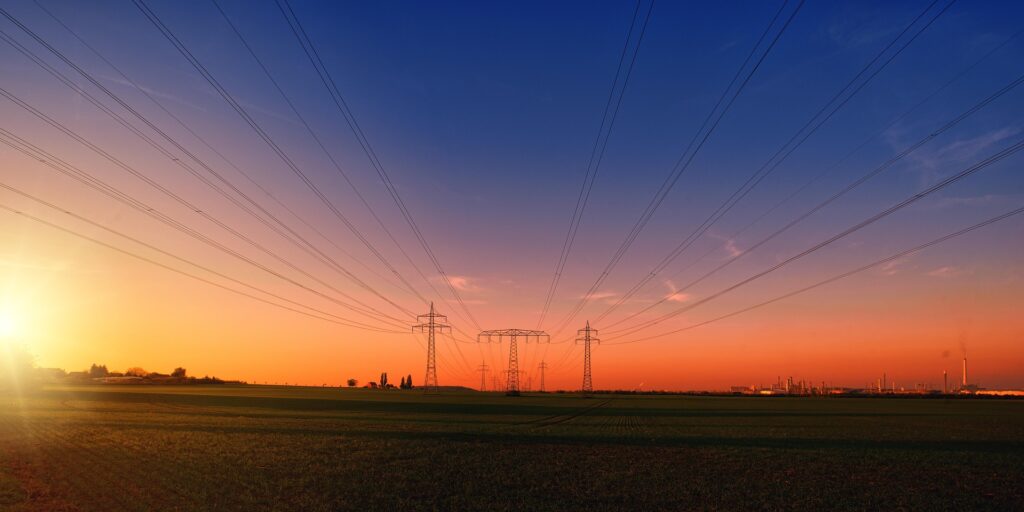POWER GENERATION & DISTRIBUTION PROGRAM

Power generation and distribution is a critical area within the energy sector, focusing on the production, transmission, and distribution of electrical power. Here are some key topics that are often included in power generation and distribution courses or training programs:
1. Introduction to Power Generation
- Overview of power generation technologies
- Types of power plants (thermal, nuclear, hydroelectric, wind, solar, etc.)
- Energy conversion principles
- Understanding energy efficiency in power generation
- Environmental impacts and sustainability in power generation
2. Thermal Power Generation
- Basics of steam generation and turbines
- Combustion systems (coal, gas, biomass)
- Heat exchange systems and cooling towers
- Power cycles (Rankine cycle, Brayton cycle)
- Boiler operation and maintenance
3. Nuclear Power Generation
- Principles of nuclear fission and reactor operation
- Types of nuclear reactors (PWR, BWR, CANDU)
- Fuel cycles and nuclear waste management
- Safety protocols and radiation protection
- Regulatory requirements and safety standards (IAEA, NRC)
4. Renewable Power Generation
- Solar Power: Photovoltaic systems, concentrated solar power (CSP), solar thermal energy.
- Wind Power: Wind turbines, wind farm design, offshore wind power.
- Hydroelectric Power: Dams, reservoirs, run-of-river, and pumped-storage hydroelectricity.
- Geothermal Power: Geothermal energy sources, geothermal power plants, direct use applications.
- Biomass Power: Biomass fuel types, combustion processes, waste-to-energy technologies.
5. Power Plant Control Systems
- Supervisory control and data acquisition (SCADA) systems
- Distributed control systems (DCS) for power plants
- Automation and instrumentation in power plants
- Real-time monitoring and fault detection
- Predictive maintenance using data analytics
6. Electricity Transmission Systems
- Power transmission lines and grid infrastructure
- High-voltage direct current (HVDC) vs. alternating current (AC) transmission
- Transformers and substation operations
- Voltage regulation and reactive power management
- Grid stability and synchronization
7. Power Distribution Systems
- Distribution network design and components (transformers, feeders, substations)
- Distribution system protection and fault analysis
- Load flow analysis and optimization
- Distribution automation and smart grids
- Metering, billing, and power quality management
8. Grid Integration of Renewable Energy
- Challenges of integrating intermittent renewable sources (solar, wind) into the grid
- Energy storage solutions (batteries, pumped storage, flywheels)
- Grid balancing and demand response
- Microgrids and decentralized energy systems
- Power quality issues with renewable integration (harmonics, voltage fluctuations)
9. Power System Stability and Reliability
- Load forecasting and balancing
- Frequency and voltage stability
- System dynamic response and transient stability
- Blackout prevention and restoration strategies
- Reliability indices and performance metrics
10. Power System Protection
- Protection schemes for transformers, generators, and transmission lines
- Relays and circuit breakers
- Fault detection and isolation techniques
- Protective coordination and relay settings
- Grounding systems and surge protection
11. Smart Grids and Advanced Metering
- Concept and components of smart grids
- Advanced metering infrastructure (AMI) and smart meters
- Real-time monitoring and grid management
- Demand-side management (DSM) and energy efficiency
- Communication technologies in smart grids (IoT, 5G)
12. Energy Storage Systems
- Battery energy storage systems (BESS)
- Pumped hydro storage
- Flywheel and compressed air energy storage
- Hybrid systems with storage and renewable generation
- Applications of energy storage in grid balancing and peak shaving
13. Power Distribution Automation (DA)
- Automated distribution systems for fault detection and restoration
- Remote monitoring and control of distribution networks
- Load management and optimization
- Outage management systems (OMS) and restoration techniques
- Advanced technologies in DA (e.g., fault indicators, reclosers)
14. Power Market and Economics
- Electricity market structures (regulated vs. deregulated)
- Power purchase agreements (PPAs)
- Market pricing and financial instruments (e.g., futures, hedging)
- Demand forecasting and load shedding strategies
- Cost of generation and pricing models
15. Power System Planning and Design
- Load forecasting and capacity planning
- Transmission and distribution network expansion planning
- Power system optimization and resource allocation
- Reliability and security of power systems
- Integration of new technologies in power systems (e.g., electric vehicles, renewables)
16. Environmental Impact of Power Generation
- Greenhouse gas emissions from fossil fuel-based generation
- Environmental regulations (e.g., Clean Air Act, EU Emissions Trading Scheme)
- Carbon capture and storage (CCS) technologies
- Impact of nuclear power and waste disposal
- Strategies for reducing environmental footprint (e.g., carbon credits, renewable energy incentives)
17. Energy Efficiency in Power Generation
- Improving thermal efficiency in power plants
- Energy audit techniques and energy conservation measures
- CHP (combined heat and power) systems
- Waste heat recovery and utilization
- Energy-efficient technologies in transmission and distribution
18. Power System Security and Cybersecurity
- Threats to the power grid (cyberattacks, physical threats)
- Securing SCADA and DCS systems from cyber threats
- Cybersecurity standards and best practices in power systems
- Physical security measures for substations and critical infrastructure
- Emergency response and disaster recovery planning for power systems
19. Power System Regulation and Policy
- Role of government and regulatory bodies in power generation and distribution
- Energy policy and regulation (e.g., FERC, NERC)
- Subsidies, incentives, and tariffs in the energy sector
- Sustainability and decarbonization policies
- Energy transition and decarbonization goals (e.g., net-zero emissions)
These topics are covered in various courses, certifications, and training programs offered by Annafay International. They provide in-depth knowledge for professionals involved in power generation, distribution, and grid management.
Are you interested in a specific area within power generation and distribution, or looking for more information on a certain technology or process? write to us training@annafayintl.co.uk



